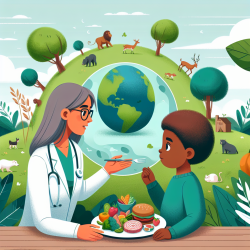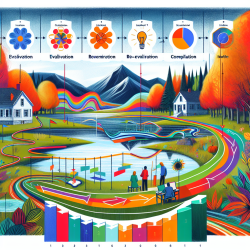Introduction
As practitioners dedicated to improving children's health, we must consider the broader implications of dietary choices, not only on individual health but also on planetary health. The research article "Perspective: Striking a Balance between Planetary and Human Health—Is There a Path Forward?" highlights the potential of sustainable diets, particularly flexitarian and territorial diversified diets (TDDs), to improve health outcomes while mitigating environmental impact.
The Case for Flexitarian and TDDs
Flexitarian and TDDs offer a balanced approach by emphasizing plant-based foods while including moderate amounts of animal products. This balance can help meet nutritional needs without the extensive dietary education or supplementation required by stricter plant-based diets like veganism or vegetarianism. These diets are particularly beneficial for children, who are at risk of nutritional deficiencies with unsupervised plant-based diets.
Data-Driven Insights
Research indicates that while vegan and vegetarian diets can reduce the risk of obesity and noncommunicable diseases (NCDs), they often fall short in providing essential nutrients such as vitamin B-12, iron, and calcium. In contrast, flexitarian diets and TDDs are more likely to meet these nutritional requirements, making them a practical choice for diverse populations, including children and adolescents.
Environmental Impact
From an environmental perspective, flexitarian and TDDs reduce greenhouse gas emissions and resource use compared to traditional Western diets. Although they have a slightly higher environmental impact than vegan diets, the inclusion of locally sourced and seasonal foods can significantly mitigate this effect.
Practical Implementation for Practitioners
- Encourage a gradual transition to flexitarian or TDDs, focusing on increasing plant-based foods while maintaining moderate animal product intake.
- Educate families on the nutritional benefits of diverse diets and the importance of local and seasonal food choices.
- Collaborate with dietitians to provide tailored nutritional advice, especially for children and adolescents.
Encouraging Further Research
While current data supports the benefits of flexitarian and TDDs, further research is needed to optimize these diets for different populations and ensure accessibility across various socioeconomic contexts. Practitioners are encouraged to stay informed about the latest research and contribute to ongoing studies.
To read the original research paper, please follow this link: Perspective: Striking a Balance between Planetary and Human Health—Is There a Path Forward?










